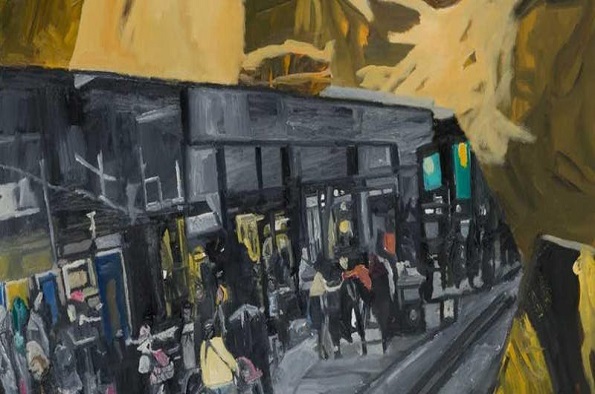
The Stranger at the Door
- Filomena Saltao
- Suitable for: All welcome
- Admission: Free
- Book now
Add this event to my calendar
Click on "Create a calendar file" and your browser will download a .ics file for this event.
Microsoft Outlook: Download the file, double-click it to open it in Outlook, then click on "Save & Close" to save it to your calendar. If that doesn't work go into Outlook, click on the File tab, then on Open & Export, then Open Calendar. Select your .ics file then click on "Save & Close".
Google Calendar: download the file, then go into your calendar. On the left where it says "Other calendars" click on the arrow icon and then click on Import calendar. Click on Browse and select the .ics file, then click on Import.
Apple Calendar: The file may open automatically with an option to save it to your calendar. If not, download the file, then you can either drag it to Calendar or import the file by going to File >Import > Import and choosing the .ics file.
Movement, Place and Meaning is the first of an annual series of public lectures presented by the School of the Arts at the University of Liverpool. The lectures showcase the research of the School and its relevance to the wider world. This year’s theme responds to urgent issues of our time that the Arts can help us better understand.
Professor Nandini Das from the Department of English presents 'The Stranger at the Door'. Strangers were everywhere in Tudor England. They sometimes crop up on the stage in the 1580s and 90s, in the guise of Jews and Turks and the occasional blackamoors and Indians. At the same time, English life and culture was being transformed by the first and second-generation continental Europeans who settled in Tudor England in large numbers. This lecture, part of a larger project about perceptions of identity, mobility, and belonging in sixteenth and seventeenth century England, examines Shakespeare’s Comedy of Errors against the backdrop of such dramatic predecessors and contemporary social and legal discourses about 'strangers', 'foreigners', and 'aliens'. How did you identify one? How long did one remain a stranger? And what happened when the stranger entered your everyday world, when ‘strangeness’, to borrow Geoffrey Hill’s evocative phrase, turned into ‘strange likeness’?
